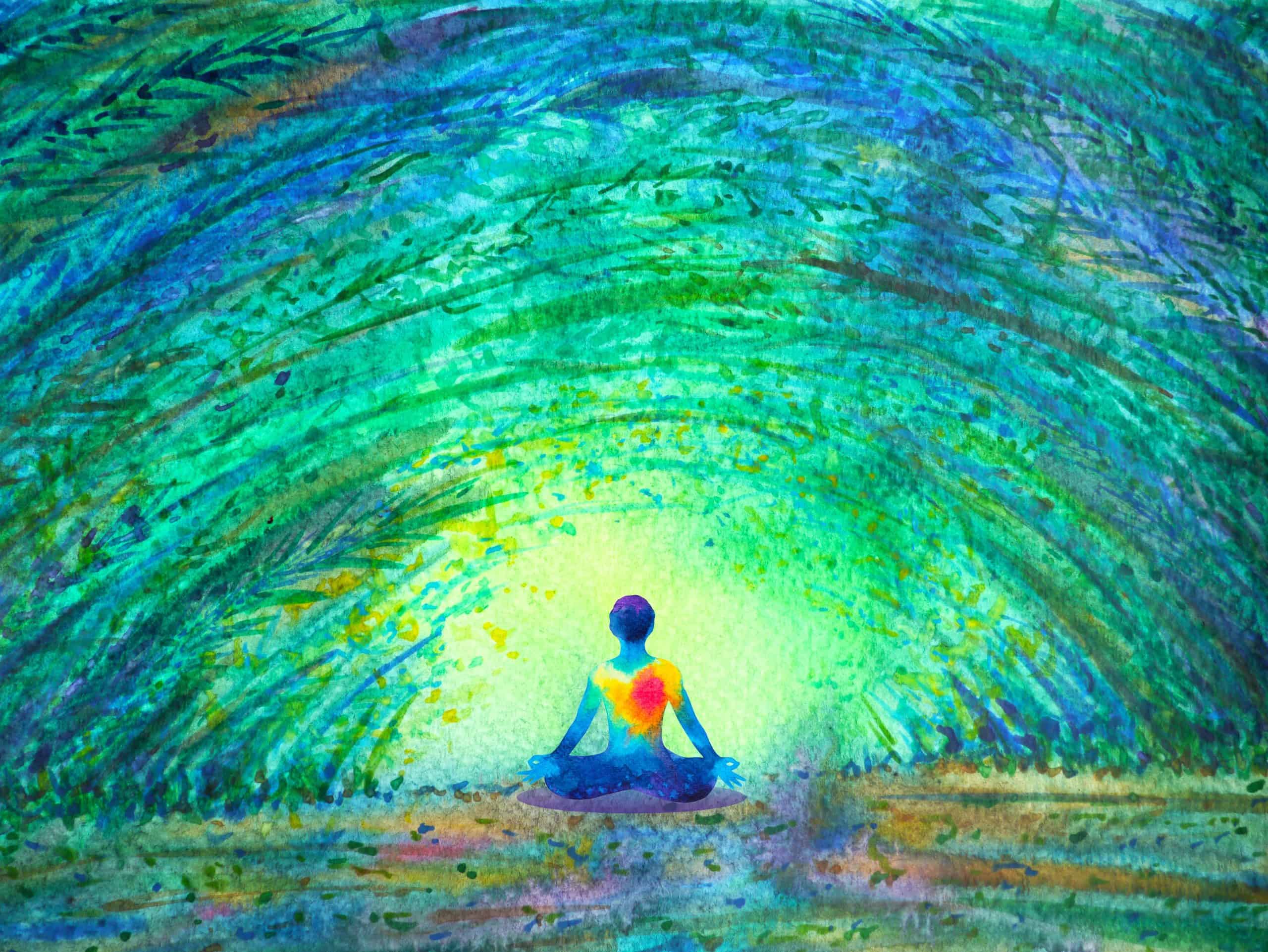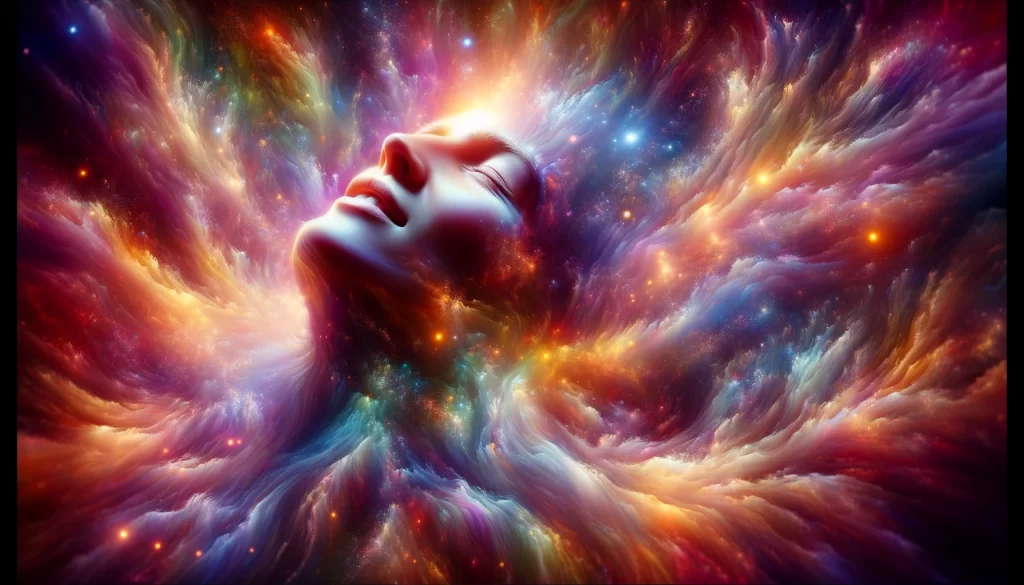
Everyone knows that human beings are conscious, and many also believe that other animals and perhaps even plants may also be conscious. But what does this really mean? How does consciousness arise in the world? What is its nature? Is it something special or just a useful adaptation? And can we learn anything about how consciousness works from non-human animals or plants?
These questions about consciousness — its origin and meaning — have been debated for as long as humans have thought about such things. The recent surge of interest in “panpsychism” represents a new wrinkle on this old problem. Panpsychism is the view that everything has a degree of consciousness, even things like tables and chairs. This isn’t just because all things have some sort of “spiritual essence” but because everything has properties like size, shape, color, smell or taste; properties that are essentially also ways of sensing the world. This post will explore the relationship between consciousness and panpsychism.
What Is Consciousness?
Philosophers, scientists and cognitive scientists have long wrestled with the question of what exactly consciousness is. Due to the inherent epistemological difficulties of exploring consciousness in an objective way, there is no consensus over the precise definition that captures all of the essential features of consciousness. Nevertheless, there are a few features that most definitions of consciousness have in common: – There is a subjective aspect to the experience of consciousness.
When we are directly experiencing the world, we are only aware of our own subjective consciousness. In other words, the contents of our experience are private and cannot be directly accessed by other people. – Consciousness is an integrated whole. Our experiences don’t feel like a random collection of disconnected sights and sounds, but like a unified “field of consciousness”. – Consciousness is known as “what it is like” to be an experiencing subject. When we experience the world, we aren’t just passively receiving information; we also have a “feeling of what it is like” to be that subject.
What Is Panpsychism?
Panpsychism is the view that all matter has some degree of consciousness. This might sound like a strange or even ridiculous view, but the truth is that no one really knows how consciousness arises. Therefore, any theory that purports to explain the origin of consciousness is going to seem strange or ridiculous at first glance. The main problem with panpsychism, as a theory about consciousness, is that it seems to “qualify” consciousness.
In other words, panpsychism suggests that consciousness is a quality that all things possess — like size or shape. This runs into problems because we often think of consciousness as something more than a mere quality. We think that only certain types of things can be conscious — living things, for example. We don’t think that consciousness is a generic property of the universe; it’s something that is rare and special.
Why Have Qualifications?
One way to respond to the problem of qualification is to argue that consciousness isn’t a mere quality; it is a special kind of relation between an experiencing subject and the things being experienced. This “relation theory” of consciousness isn’t a solution to the problem of qualification because it isn’t a form of panpsychism. It’s an attempt to redefine what we mean by “consciousness” so that we aren’t forced to admit that everything has consciousness.
A better way to respond to the problem of qualification is to argue that consciousness isn’t just a simple quality like size or shape. It is a highly complex and sophisticated phenomenon that depends on underlying neural and cognitive processes that are specific to living creatures. Consciousness isn’t a generic quality that all things possess; it is a specific ability of living things that comes about as a result of very particular underlying processes.

Is Consciousness Present in Everything?
One way to respond to the problem of qualification is to argue that consciousness isn’t a mere quality of the world — it’s a fundamental aspect of the nature of all things. This would mean that consciousness isn’t something that we discover like an underlying law of nature; it is something that we create when we observe the world and use language to give meaning to our perceptions. This is the reasoning behind the “panpsychist” approach to the problem of qualification: consciousness isn’t something that some things have; it is something that all things have.
Consciousness isn’t something that is added to the world; it is something that is implicit in all things. It’s not something we discover when we observe the universe; it’s something that we impose on the universe when we make meaning out of our observations.
Consciousness As An Adaptation: The Epistemological Argument For Panpsychism
One way to respond to the problem of qualification is to argue that consciousness isn’t something that all things have; it’s something that only living things have. This would problematize the “epistemological” approach to the problem of qualification: consciousness is an adaptation that gives a particular advantage to living things. This is one way to respond to the problem of qualification by arguing that consciousness isn’t a generic phenomenon but a specific ability.
However, panpsychism challenges this view by suggesting that consciousness is not merely an evolved adaptation but an inherent aspect of reality itself, extending beyond biological organisms. This isn’t a form of panpsychism because it doesn’t suggest that everything has consciousness — only living things do. Consciousness is an adaptation that has been shaped by natural selection to give living things an advantage in the struggle for survival.
Consciousness As An Adaptation: The Ontological Argument For Panpsychism
One way to respond to the epistemological problem of qualification is to argue that consciousness isn’t something that only living things have; it is something that all things have. This would problematize the “ontological” approach to the problem of qualification: consciousness is a fundamental aspect of the underlying nature of all things. This is one way to respond to the problem of qualification by arguing that consciousness isn’t a specific ability but a fundamental feature of the universe.
It isn’t something that we discover when we observe the world; it is something that we create when we give meaning to our observations. This isn’t a form of panpsychism because it doesn’t claim that everything has consciousness — only things that are capable of meaning-making are given a degree of consciousness.
Can Consciousness Exist Without Self-Awareness?
One way to respond to the problem of qualification is to argue that consciousness isn’t a generic phenomenon; it’s a specific ability of living things that only living things have — the ability to be self-aware. This would problematize the “epistemological” approach to the problem of qualification: consciousness is a specific ability that only living things have — the ability to be self-aware.
This is one way to respond to the problem of qualification by arguing that consciousness isn’t a basic ability of all things; it’s a complex ability that only living things have: the capacity to be self-aware. Self-awareness is a heightened cognitive ability where we can experience ourselves as subjects in the world. This kind of view is widely accepted, but panpsychism presents an alternative and suggests that self-awareness is a higher-order manifestation of consciousness that exists in everything to various degrees.
Still Searching for the Nature of Consciousness
Despite the lengthy discussion of consciousness above, it might seem that we’re no closer to understanding what consciousness is. The truth is that no one really knows how consciousness arises in the world or what it really is. We are forced to make educated guesses in the absence of any clear consensus.
Panpsychism offers one of the most radical yet compelling perspectives in this debate, proposing that consciousness is not an emergent property of complexity but an intrinsic feature of reality itself. This doesn’t mean that we can’t learn anything from the debate about consciousness; it just means that we should be careful not to overstate the certainty of our conclusions. Whatever view we hold about the nature of consciousness, it would be wise to remember that we don’t fully understand the phenomenon we call “consciousness.”

Meet Paul Wagner
Paul Wagner is an Intuitive Life & Business Coach, clairvoyant reader, and five-time EMMY Award-winning writer. He created “THE PERSONALITY CARDS,” a powerful Oracle-Tarot deck that’s helpful in life, love, and relationships. Paul studied with Lakota elders in the Pecos Wilderness, who nurtured his empathic abilities and taught him the sacred rituals. He has lived at ashrams with enlightened masters, including Amma, the Hugging Saint, for whom he’s delivered keynotes at Her worldwide events.
Paul tours the world lecturing on spiritual liberation. He lovingly offers intuitive readings, inspirational coaching, and illuminating courses to help others with self-discovery, decision-making, healing, and forgiveness. Book a session with Paul: HERE.



